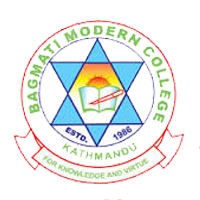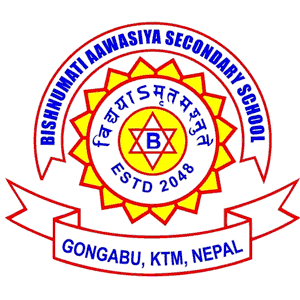Overview
Ten Plus Two (+2) Science at Gyankunj College, Ravibhawan, Kathmandu
Ten Plus Two (+2) Science at Gyankunj College runs under the National Examination Board (NEB) for Grades 11 and 12.
You study Physics, Chemistry, Biology, and Mathematics in a campus setting that supports lab work, problem practice, and exam preparation.
Overview
+2 Science at Gyankunj College builds a strong base for medicine, engineering, agriculture, and science degrees. The stream follows NEB subject structures and practical requirements. Faculty encourage a plan that starts early, uses past papers, and includes lab notebooks maintained to NEB standards.
The stream suits learners who enjoy problem solving, experiments, and clear documentation. A weekly rhythm of theory classes, lab sessions, and short tests keeps progress steady.
Highlights
-
Affiliation: National Examination Board (NEB)
-
Level: Grades 11 and 12 (+2 Science)
-
Streams within Science: PCM (Physics–Chemistry–Mathematics) or PCB (Physics–Chemistry–Biology), as offered
-
Facilities: Separate Physics, Chemistry, and Biology labs; ICT lab; library
-
Evaluation: Internal assessments, practicals, terminal exams, and NEB board exams
Curriculum Details
The program follows NEB syllabi for Science. Subject combinations depend on the college’s yearly plan and NEB rules.
Typical set includes:
-
Compulsory English and Compulsory Nepali
-
Physics and Chemistry
-
Either Biology or Mathematics (some students choose both based on availability and workload)
-
Optional subject as per NEB list and internal offerings
Lab work covers measurement, error checks, and standard experiments such as titration in Chemistry, kinematics in Physics, and microscopy in Biology. Mathematics supports calculus, coordinate geometry, and probability for students who select the PCM track.
Objectives
-
Build careful habits in measurement, safety, and observation during lab sessions.
-
Strengthen numerical skills and reasoning for problem sets across Physics and Chemistry.
-
Develop clear scientific writing through lab reports and summaries.
-
Prepare students for entrance tests in medicine, engineering, and allied fields through structured revision.
Scope
Students use +2 Science for MBBS, engineering, pharmacy, agriculture, veterinary science, IT, and data-focused degrees. The stream also supports applications to science, mathematics, and environmental programs at bachelor’s level. A strong board score, lab records, and steady attendance help you meet future entry requirements.
Learning Outcomes
Graduates of Grade 12 Science should be able to:
-
Conduct standard NEB practicals using proper safety and documentation.
-
Solve numerical questions in mechanics, thermodynamics, electrostatics, and basic circuits.
-
Explain core Chemistry topics such as bonding, equilibrium, organic reactions, and periodic trends.
-
Use Biology concepts in cell structure, physiology, genetics, and ecology where applicable.
-
Write lab reports that show aim, method, results, and error analysis.
Skill Development Modules
-
Lab Technique: Measurement accuracy, calibration, safety checks, data tables
-
Numerical Strength: Derivations, unit analysis, problem-solving steps
-
Scientific Communication: Lab notebooks, graphs, abstracts, citations
-
Digital Skills: Spreadsheet plotting, basic simulation tools (as available), document formatting
-
Study Habits: Daily practice, spaced revision, formula sheets, concept maps
Teaching Methodology
Faculty use board teaching for theory, followed by worked examples and practice sheets. Lab teachers brief safety steps, demonstrate key experiments, and review lab books weekly. Pre-exam months feature past paper drills and short doubt-clearing sessions.
You can expect:
-
Topic plans and reading lists shared at term start
-
Practical schedules posted by subject teachers
-
Class tests and terminal exams that mirror NEB timing
-
Library hours for reference texts and exam guides
Admission Requirements
-
Eligibility: SEE graduates or equivalent meeting NEB criteria for +2 Science
-
Process: Application, verification of documents, and stream allocation based on internal policies
-
Documents: SEE mark sheet, character certificate, transfer certificate (as applicable), two passport-size photos
-
Placement: PCM or PCB choices confirmed by the college based on capacity and your performance in prerequisite subjects
Career Opportunities
Students typically prepare for MBBS, engineering, pharmacy, or IT degrees after Grade 12. Others pursue BSc programs in Physics, Chemistry, Biology, or Mathematics. Early planning, careful lab work, and consistent problem practice help you face university entry tests and interviews with confidence.
Scholarships and Financial Aid
Gyankunj College runs scholarship categories based on merit and need as announced each session. Eligible students should apply during admission, attach supporting documents, and track notified deadlines.
Why Choose This Course?
-
NEB Science Structure: Recognized stream with practical and theory balance.
-
Lab Access: Separate labs that support standard NEB experiments.
-
Exam Support: Regular tests, past paper drills, and feedback meetings.
-
Next Steps: Pathway to medicine, engineering, and science degrees.
Conclusion
+2 Science at Gyankunj College offers a disciplined path through theory, practicals, and exam preparation. You learn to measure carefully, reason through problems, and present clean lab records. A steady routine and timely feedback help you move toward Grade 12 board exams and competitive entrance tests for your chosen field.



















